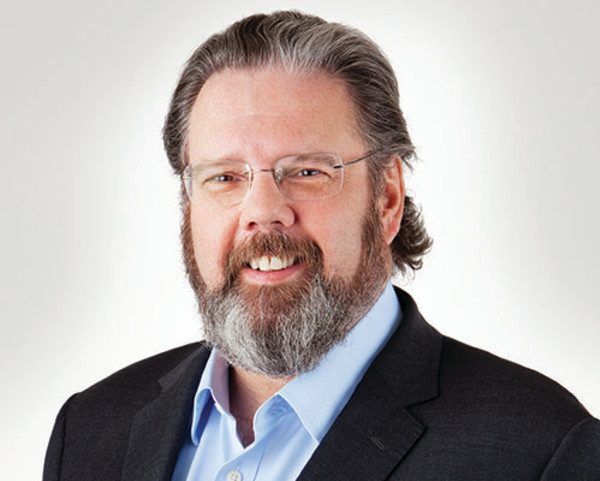

Transact is one of the best-known and most popular wrap platforms available to financial advisers and, in the UK, certainly one of the first.
Developed by departing executive director, Ian Taylor and his colleague Mike Howard, who brought his platform knowledge over from Australia, it is now one of the largest and most profitable.
Operating on profit margins of around 50 per cent, it made £49m profits last year, and its share price has doubled since it floated (under the name of IntegraFin, its holding company) two years ago. It has just under £40bn of funds under direction.
However, perhaps more importantly for financial advisers, it has not been beset with problems in the way other platforms have, especially when it comes to providing the most up-to-date functionality for clients, and changing the underlying technology.
Mr Taylor says there are various reasons for this.
He says: “We had nothing to start with. We didn’t have to turn a life company into a platform business.
“Owning your own tech was an enormous advantage for the specific reason you could build exactly what your clients wanted, rather than share something with everyone else [that] was wanted across the board.
“We are one of the few companies built from scratch. All of the things we were doing were with the sole intention of building Transact.
“We weren’t trying to change a life business or an asset management business into a platform.”
Transact started via an introduction between Mr Taylor, when he was working at John Govett and Mr Howard, who had developed software, ObjectMastery, which was used by another platform in Australia.
The company began in 1999 when the pair and another colleague rented three rooms above an Italian restaurant in Shoreditch (“I was one of the first bearded people in Shoreditch”), and they turned an Australian product into an English one – incorporating the correct tax wrappers, for example.
Mr Taylor says they tried to change the basic structure of how people accessed their wealth.
“It centralised administration round Mrs Miggins, rather than advisers. It changed the way financial advice was delivered.
“Back in the late 1980s your pension was sold by an adviser and provided by a life company. The only investment choice is a choice of two or three [funds]; you would have had no idea what it would cost, and it was quite expensive.” Plus, by the time the client got a statement on the pension’s value, it was out of date.
Mr Taylor says they had some basic principles of what they were going to offer: Transact would provide transparent information, offer complete choice to the client and would charge them less.
“Why would anyone say ‘no’? It seemed so obvious, but that’s not how things work.”
As he discovered, despite the obvious benefits to all involved, it took a few years before it became an established business.
“We didn’t know [it would succeed]. The first three years in particular – it was by no means taken for granted that it would be successful.
“While there was not a great deal of risk from an adviser’s point of view, advisers did have to change an awful lot of things in order to have maximum benefit.
“Many years ago it took [advisers] about four or five years to work with Transact, but by the time they did, they found they had fewer clients but better clients, rather than a filing cabinet full of policies and customers they had sold to.”
A lot of the early days involved a lot of legwork, speaking to advisers and convincing them to try the technology. They had introductions to many influential advisers, including Institute of Financial Planning members, and the company’s advertising budget for the first six years was £6,000.
But Mr Taylor and Mr Howard made the interesting move, firstly of not offering commission to advisers, but instead giving them the chance to buy shares in the business.
Mr Taylor says: “In the early days, because advisers were going to be very important to make the business a success, it seemed reasonable we should share some of that success, but the rules meant you couldn’t just give shares away; you had an investor option where you could buy shares if you wanted to.”
The option was very popular – and the advisers paid the full price, he says. And this was largely the reason the company floated on the stock exchange, in March 2018, at 196p. The shares are now trading at more than 500p.
Transact is still very popular – in the Lang Cat’s most recent Platform Market Scorecard report, Transact is cited as the platform advisers would most likely want to use in the future.
Mr Taylor puts this popularity – and its profit margins – down to the fact that it is very efficient.
He says: “The vast majority of [discussions] with advisers are done by one of the client service managers, and they do all of the work, which means from what the adviser sees, to the back office.
“That takes out an enormous amount of administration, and it does mean we are a remarkably efficient organisation.”
Mr Taylor says the company is also careful on costs: “We don’t pay ourselves a fortune. In the City, some of the salaries are a bit high.”
Now he is leaving – after stepping down as chief executive in March, he is departing from the company completely in February next year.
He has no plans to start another business, feeling that he owes his family more time after setting up and building a very successful tech and ‘relationship business’.
Originally wanting to be a novelist, he has a particular way of looking back on the start of the platform sector: “It was like the early days of punk rock – there were a whole bunch of punk rock bands, who were [really] glam rock banks, that wanted to get in on the punk rock scene; we were one of the original punk rock bands.”
Melanie Tringham is features editor at FTAdviser and Financial Adviser



